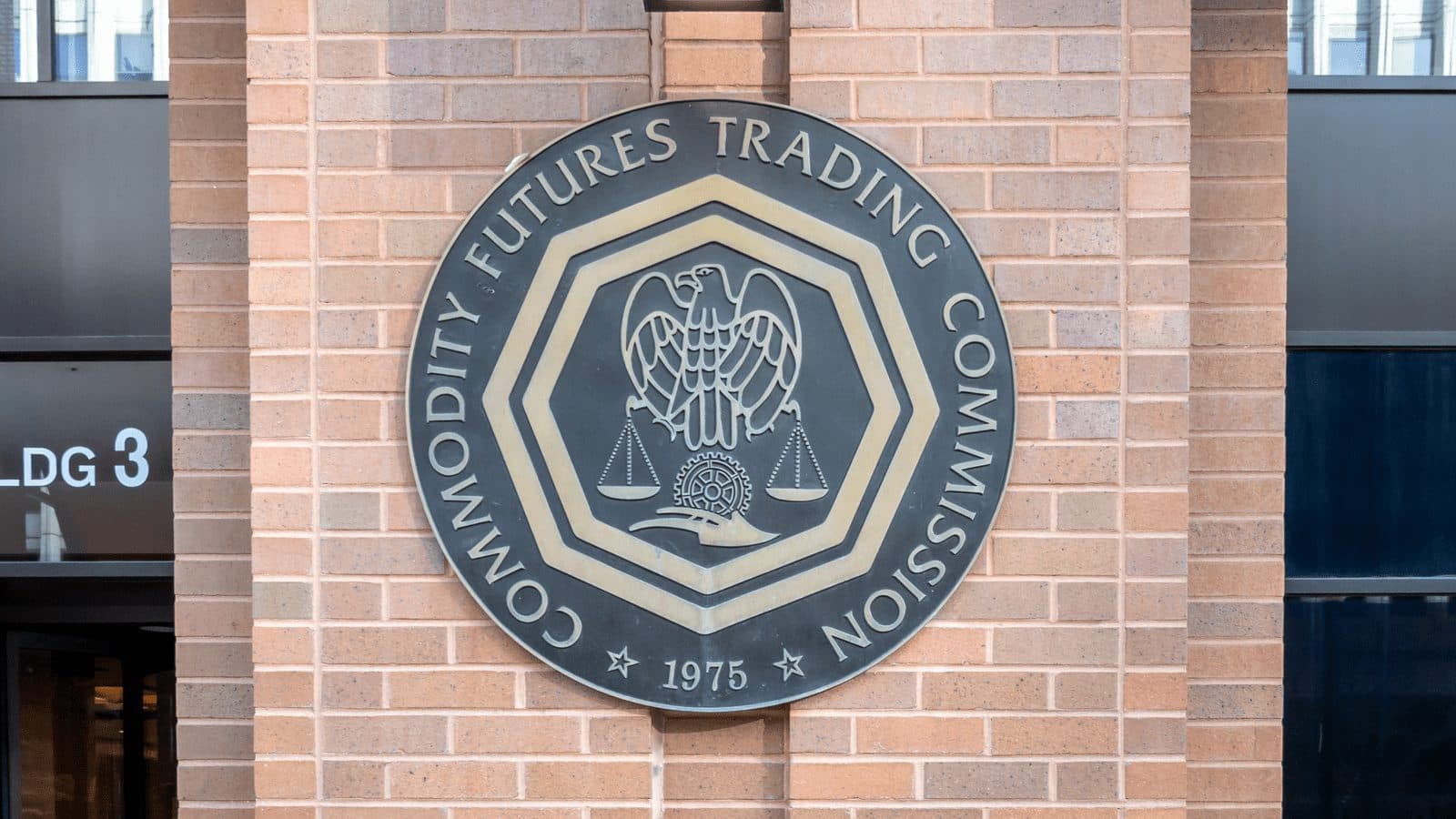CFTC Charges 4 in Crypto Ponzi Scheme as Questions Swirl Over Jurisdiction
The case has attorneys puzzled over which US agency has jurisdiction

Commodity Futures Trading Commission | Source: Shutterstock
- The CFTC has charged four individuals it claims were involved in operating a ponzi scheme that swindled $44 million of bitcoin from investors
- Regulators should focus on establishing rules rather than retroactive charges, one attorney said
A US regulator has charged four individuals with fraud surrounding an alleged crypto ponzi scheme that raised more than $44 million of bitcoin.
The case, brought by the Commodity Futures Trading Commission (CFTC), highlights the escalating jurisdiction battle over digital asset regulation, an attorney said.
“This case is indicative of the high-profile matters regulatory agencies desire when it comes to crypto oversight,” Braden Perry, partner at Kennyhertz Perry, said. “[There is] a rift between regulators, and the jurisdictional war has been ongoing between the CFTC and [the Securities and Exchange Commission], who are fighting to expand their regulatory remit over the crypto and [decentralized finance] industry.”
The CFTC has charged Florida resident Dwayne Golden, North Carolina resident Marquis Egerton, New York resident Gregory Aggesen and Indian citizen Jatin Patel in connection to the ponzi scheme.
According to the complaint filed Tuesday, the quartet operated several websites — Empowercoin, Ecoinplus and later JetCoin — from April to August 2017.
The sites promised users that invested funds would be doubled in less than two months and guaranteed between 2% and 5% of daily accruals. The twist, according to the CFTC: The payouts stemmed from funds from new investors.
The CFTC alleged the accused pocketed $10 million from Empowercoin and Ecoinplus — they allegedly received a total of $23 million in bitcoin, valued at the time of investment, from the two sites. They took home about $7.8 million of the $21.7 million raised through JetCoin.
In July 2017, the Ecoinplus website went offline, and by August, JetCoin was shut down. Customers from either website did not receive funds, according to the CFTC.
The charges are based on violations of anti-fraud measures laid out in the Commodity Exchange Act and CFTC rules, according to Perry.
“This is different from CFTC regulating the spot bitcoin [market], and there is still much industry confusion about what agency, if any, regulates bitcoin as a commodity,” Perry said.
The CFTC filed civil charges, but the American defendants are also facing criminal charges from the Justice Department for wire fraud and money laundering. If convicted, the defendants could face time in federal prison.
The battle between agencies over crypto regulation isn’t helping to bring clarity to the space, according to Perry.
“The last thing any industry wants is what regulators have been doing in the cryptocurrency space: regulation by enforcement, in which agencies decide that some practices should have been illegal, and instead of declaring it illegal from now on through rulemaking, go back and prosecute the people who were doing it before,” Perry said.
Get the news in your inbox. Explore Blockworks newsletters:
- The Breakdown: Decoding crypto and the markets. Daily.
- 0xResearch: Alpha in your inbox. Think like an analyst.






